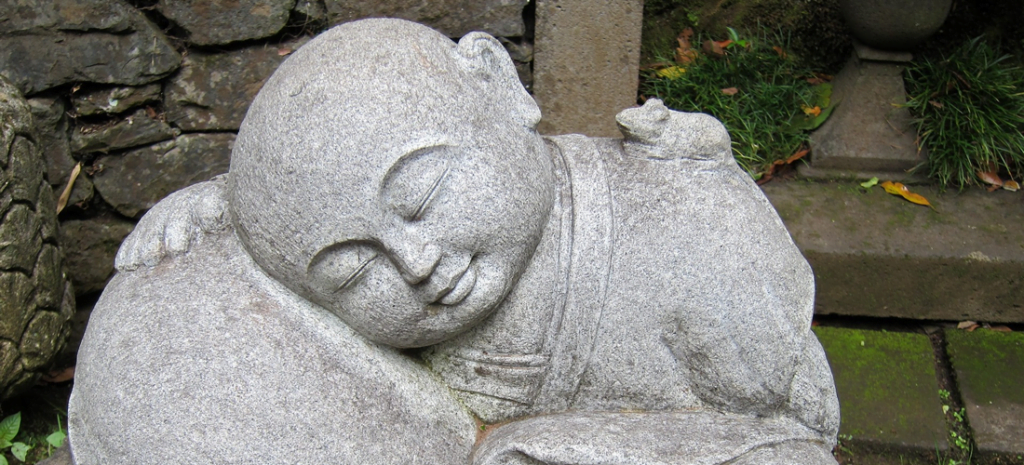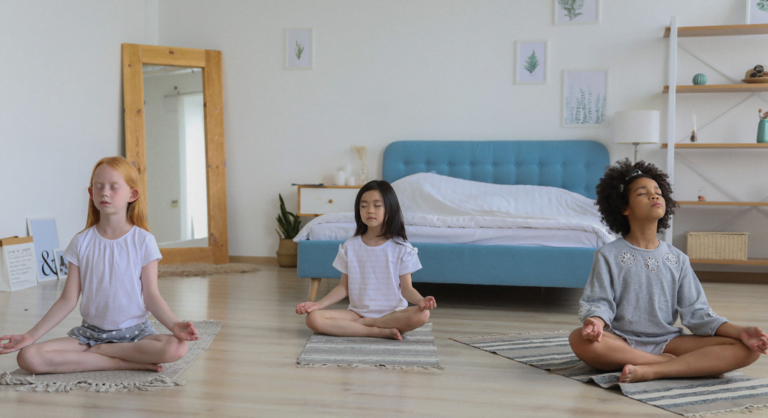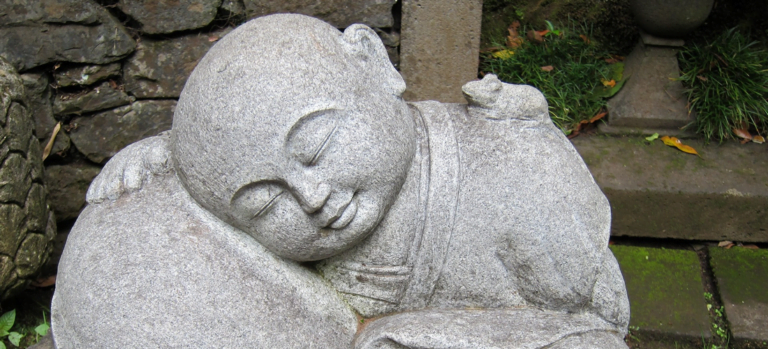Welcome to a contemplative journey into the realm of solitude and its profound connection with sleep. In the hustle and bustle of modern life, solitude is often misunderstood, dismissed as loneliness, or even feared. However, in this blog post, we invite you to embrace solitude as a powerful gateway to a restful and rejuvenating sleep experience. By exploring the intricate relationship between solitude and sleep, you’ll discover how this harmonious duo can not only nourish your mind and body but also awaken your true inner self.
So, settle in, as we unveil the hidden wonders that lie within the quiet embrace of solitude and the serenity it brings to your slumber. Let’s embark on this captivating voyage together, where dreams and introspection intertwine to unlock the secrets of a well-rested soul.
The Significance of Solitude for Sleep
Solitude and alone time can significantly influence the quality of your sleep, creating a positive and lasting impact on your overall well-being. In today’s fast-paced and interconnected world, we often find ourselves constantly surrounded by people, technology, and noise. This constant stimulation can lead to heightened stress and anxiety, making it difficult for us to unwind and find tranquility. However, by intentionally seeking solitude and allocating time for yourself, you can create a serene space that promotes relaxation and ultimately enhances your sleep.
Spending time alone provides an opportunity to disconnect from external stressors and responsibilities. It allows you to step away from the hustle and bustle of daily life, giving your mind the chance to decompress and release pent-up tension. As you immerse yourself in solitude, you can engage in various relaxation techniques, such as meditation, deep breathing, or mindfulness practices. These activities help to quiet the mind, ease anxieties, and reduce stress, creating an ideal mental state for a peaceful and restful sleep.
Establishing a consistent alone time routine can greatly benefit your sleep quality. By dedicating moments to yourself each day, you cultivate a healthy sleep-wake cycle. Your body begins to recognize the pattern, preparing itself to wind down at the same time each night. This regularity allows your internal clock, or circadian rhythm, to synchronize, leading to more refreshing and efficient sleep.
Engaging in alone time provides an opportunity for sleep-friendly activities that prepare your body and mind for restful slumber. Reading a book, taking a warm bath, or engaging in gentle yoga are all calming rituals that can help you relax and ease into sleep more effortlessly. Such activities not only improve your sleep but also add a sense of fulfillment and tranquility to your daily routine.
Creating a Tranquil Sleep Environment
To create a peaceful and solitary sleep environment in your bedroom, follow these tips and embrace the benefits of solitude for improved sleep hygiene:
1. Declutter and Simplify
Keep your bedroom tidy and organized, removing any unnecessary clutter. A clean and serene space promotes a sense of tranquility and relaxation, allowing you to unwind more easily before sleep.
2. Dim the Lights
Install soft, dimmable lighting in your bedroom to create a soothing atmosphere. Dimming the lights in the evening signals to your body that it’s time to wind down and prepare for rest.
3. Limit Electronics
Minimize the presence of electronic devices in your sleep environment. The blue light emitted from screens can interfere with your body’s natural sleep-wake cycle. Instead, opt for a book or calming music to help you relax before bedtime.
4. Choose Soothing Colors
Decorate your bedroom with calming colors such as soft blues, greens, or neutrals. These colors can have a calming effect on your mind and contribute to a more peaceful sleep environment.
5. Invest in Comfortable Bedding
Choose comfortable and high-quality bedding that suits your preferences. A cozy mattress and soft pillows can significantly improve your sleep quality and overall sleep experience.
6. Soundproof Your Space
If possible, soundproof your bedroom or use white noise machines to minimize disturbances from outside noises. A quiet sleep environment enhances your ability to relax and fall asleep.
7. Temperature Control
Keep your bedroom at a comfortable temperature, typically slightly cooler than the rest of your home. A cooler environment can promote better sleep and prevent overheating during the night.
8. Create a Relaxing Pre-Sleep Routine
Engage in relaxing activities before bedtime, such as reading a book, practicing gentle stretches, or meditating. This routine helps signal to your body that it’s time to unwind and prepare for sleep.
9. Establish a Consistent Sleep Schedule
Try to go to bed and wake up at the same time each day, even on weekends. A regular sleep schedule reinforces your body’s internal clock, improving the quality of your sleep.
10. Set Boundaries
Establish clear boundaries with others living in your home to respect your alone time in the bedroom. Explain the importance of solitude for your sleep hygiene and kindly request that interruptions be minimized during your designated sleep hours.
By incorporating these tips and embracing the benefits of solitude in your bedroom, you can create a tranquil and serene sleep environment that promotes restful and rejuvenating sleep. Remember, the time you spend alone in your sleep sanctuary is an investment in your well-being, allowing you to recharge both physically and mentally, and wake up feeling refreshed and ready to embrace each new day.
Addressing Sleep Disorders with Solitude
Solitude and self-reflection can play a crucial role in identifying potential sleep disorders by allowing individuals to become more aware of their sleep patterns, habits, and overall well-being. When someone spends time alone and engages in introspection, they can notice subtle changes in their sleep quality and identify signs that may indicate the presence of a sleep disorder. Here’s how solitude and self-reflection can be beneficial in this context:
1. Recognizing Sleep Patterns
Spending time alone provides an opportunity to establish a consistent sleep routine and observe patterns in your sleep-wake cycle. Self-reflection enables you to notice any irregularities, such as difficulty falling asleep, waking up frequently during the night, or experiencing excessive sleepiness during the day. Recognizing these patterns can be the first step in identifying a potential sleep disorder.
2. Tracking Sleep Habits
Engaging in self-reflection involves assessing your lifestyle and habits, including your sleep-related behaviors. By keeping a sleep diary or journal, you can record details about your sleep duration, bedtime routines, and any factors that might be affecting your sleep, such as caffeine or alcohol consumption. Tracking these habits can help identify potential triggers or issues that could be contributing to sleep disturbances.
3. Understanding Sleep Quality
Solitude allows you to focus on how you feel after waking up, and whether you feel well-rested or fatigued. Self-reflection helps you recognize the impact of sleep quality on your daily life, including your mood, cognitive function, and overall productivity. If you consistently feel unrefreshed despite getting enough sleep, it may indicate an underlying sleep disorder.
4. Identifying Sleep-related Symptoms
Spending time alone gives you the space to pay attention to any physical or emotional symptoms that could be related to sleep disorders. For instance, self-reflection may lead you to notice signs like snoring, choking or gasping during sleep (which may suggest sleep apnea), excessive restlessness (which might indicate restless legs syndrome), or frequent nightmares (associated with certain sleep disorders).
5. Seeking Professional Evaluation
Engaging in self-reflection can empower you to recognize when it’s time to seek professional help. If you consistently notice disturbances or irregularities in your sleep patterns and habits, it’s essential to consult a healthcare provider or sleep specialist. They can conduct a comprehensive evaluation, including sleep studies if necessary, to diagnose any potential sleep disorders accurately.
6. Improving Sleep Hygiene
Self-reflection can reveal areas in your life that might be negatively impacting your sleep hygiene. By identifying and addressing these issues, such as excessive screen time before bedtime or irregular sleep schedules, you can make positive changes to promote better sleep.
In conclusion, solitude and self-reflection provide valuable opportunities for individuals to assess their sleep patterns, habits, and overall sleep quality. By recognizing potential signs of sleep disorders through introspection, individuals can take proactive steps towards seeking professional evaluation and making positive lifestyle changes to improve their sleep and overall well-being. Identifying and addressing sleep disorders early can lead to more effective treatment and a significant enhancement in the quality of life.
Overcoming Challenges in Embracing Solitude for Sleep
Creating solitude for sleep can be challenging, especially in today’s busy and interconnected world. However, with some practical solutions and determination, you can overcome these obstacles and establish a sleep-promoting routine. Here are some common challenges readers may face and how to address them:
1. Digital Distractions
Electronic devices, such as smartphones and laptops, can disrupt your alone time and interfere with your ability to wind down for sleep. To overcome this challenge, establish a digital curfew at least an hour before bedtime. Turn off or silence notifications, and keep your devices out of reach to resist the temptation of checking them.
2. Roommates or Family Members
If you share living spaces with others, it can be challenging to find moments of solitude. Communicate your need for alone time to your roommates or family members, and establish a designated quiet time for yourself each day. You can also consider using headphones or earmuffs to create a private and peaceful atmosphere.
3. Work or Study Demands
Demanding work or study schedules may limit your ability to allocate time for solitude and relaxation. Prioritize self-care and allocate specific time slots for alone time, even if it’s just for a few minutes each day. Set boundaries with work or study commitments to ensure you have time for yourself before bedtime.
4. Mind Clutter and Stress
Racing thoughts and stress can prevent you from fully immersing yourself in solitude. Practice mindfulness meditation or deep breathing exercises to quiet your mind and release tension. These techniques can help you transition from a busy day to a more tranquil state conducive to sleep.
5. Lack of Privacy
Living in shared spaces or cramped quarters might make it challenging to find a private area for solitude. Consider creating a personal space within your room, even if it’s just a corner with some cushions or a small chair. Use this space during your designated alone time to engage in calming activities before bedtime.
6. Inconsistent Sleep Schedule
Irregular sleep patterns can make it difficult to establish a sleep-promoting routine. Set a consistent sleep schedule, aiming to go to bed and wake up at the same time each day, even on weekends. This regularity helps regulate your internal clock and improves sleep quality.
7. External Noise
Noise from outside or neighboring rooms can disrupt your alone time and sleep. Invest in earplugs or noise-canceling headphones to create a quieter environment during your designated solitude periods and at bedtime.
8. Unwinding Before Bed
Difficulty winding down before bedtime can interfere with your sleep-promoting routine. Establish a relaxing pre-sleep routine that includes activities like reading a book, taking a warm bath, or practicing gentle stretches. This routine signals to your body that it’s time to relax and prepares you for sleep.
By being mindful of these common challenges and implementing practical solutions, you can create more opportunities for solitude and establish a sleep-promoting routine. Remember that making small adjustments to your daily habits and prioritizing self-care can have a significant impact on your sleep quality and overall well-being. Over time, you’ll find that moments of solitude before bedtime become an essential and cherished part of your daily life, leading to more restful and rejuvenating sleep.
The Impact of Sleep on Solitude and Mental Clarity
Quality sleep serves as a powerful enhancer of the benefits of solitude during waking hours, fostering a harmonious and fulfilling waking life. When you experience restorative sleep, the advantages of spending time alone become more pronounced, leading to improved mental, emotional, and physical well-being.
One of the significant ways quality sleep enhances the benefits of solitude is through improved focus and clarity. Adequate rest allows your brain to sharpen cognitive functions, such as attention and memory. As a result, when you engage in moments of solitude during the day, you can fully immerse yourself in activities that require deep thought and reflection. The heightened focus enables you to process information more effectively, leading to deeper insights and a clearer understanding of yourself and the world around you.
Improved sleep quality also translates into heightened productivity and efficiency during waking hours. When well-rested, your energy levels and motivation increase, making solitude a time for productive self-reflection, goal setting, and planning. The combination of quality sleep and solitude empowers you to approach these activities with a renewed sense of determination and focus, optimizing your alone time for personal growth and achievement.
Quality sleep and solitude form a symbiotic relationship, each enhancing and reinforcing the benefits of the other. Improved cognitive functions, enhanced creativity, emotional resilience, heightened productivity, and physical well-being are some of the ways that sleep enhances the advantages of solitude during waking hours. By valuing and prioritizing both quality sleep and alone time, you create a powerful synergy that nurtures your mind, body, and soul, leading to a more fulfilling and meaningful life.
Closing Thoughts
The profound connection between solitude and sleep unveils a transformative path to enhanced well-being and a more fulfilling life. As we have explored throughout this blog post, solitude offers a sanctuary for introspection, self-awareness, and rejuvenation, setting the stage for a restorative slumber. By embracing moments of solitude and making quality sleep a priority, we unlock a cascade of benefits that ripple through our waking hours.
As we transition from solitude to the realm of dreams, the impact of quality sleep becomes evident. Improved cognitive function, heightened creativity, emotional resilience, and enhanced physical well-being are just a few of the gifts that sleep bestows upon us. A well-rested mind opens the gateway to boundless possibilities during our waking hours, enabling us to tackle challenges with clarity, embrace opportunities with vigor, and navigate life’s intricacies with grace.
By weaving solitude and quality sleep into the fabric of our daily lives, we cultivate a profound synergy that nourishes every aspect of our being. The benefits of solitude during waking hours are amplified by the rejuvenating power of sleep, creating a virtuous cycle that nurtures our mind, body, and soul.









